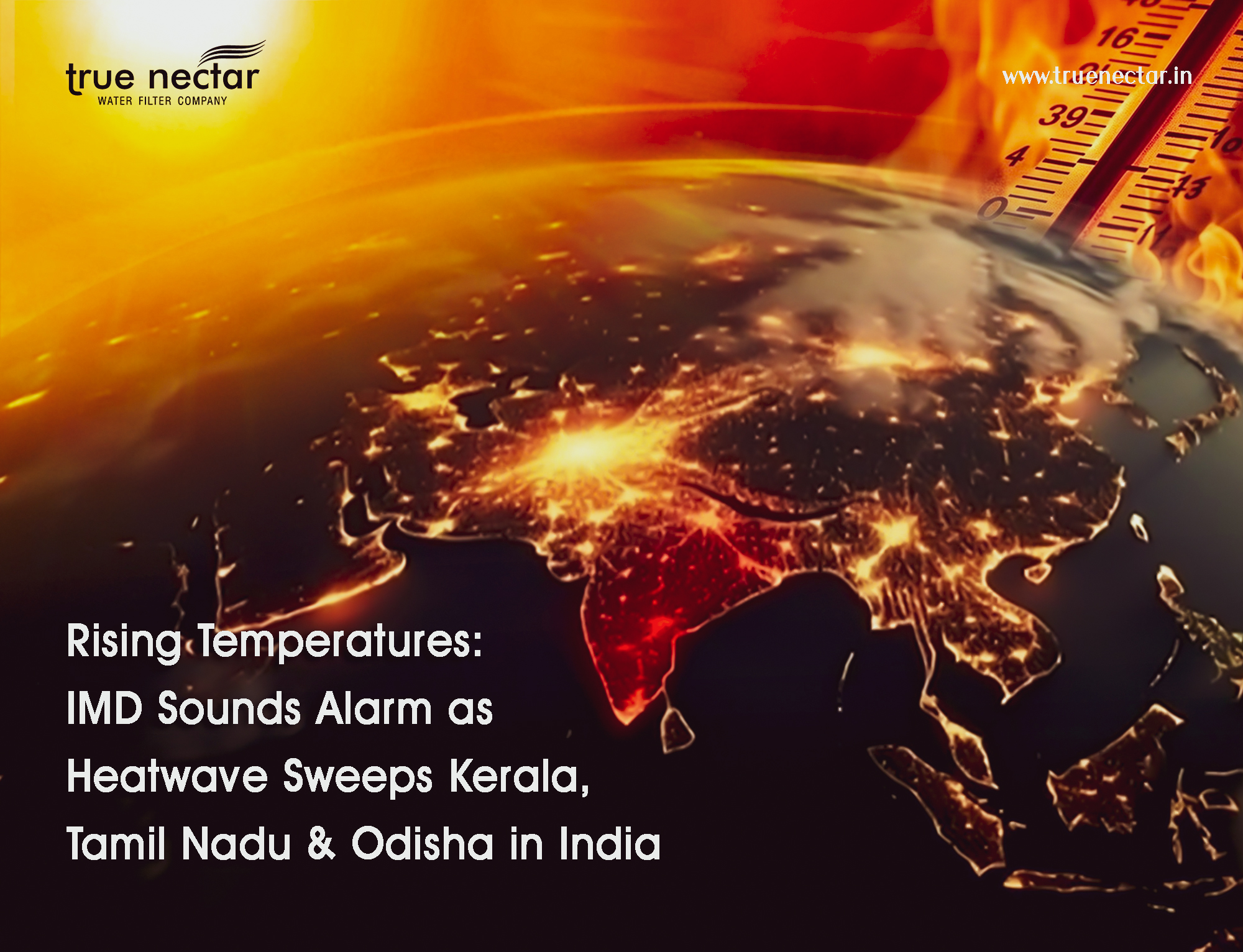Introduction
As the summer months approach, the specter of heatwaves looms large over several regions of India. Recently, the India Meteorological Department (IMD) issued a heatwave alert for parts of Kerala, Tamil Nadu and Odisha indicating the likelihood of soaring temperatures in these areas. Particularly concerning is the situation unfolding in Kerala, where rising temperatures are causing discomfort and posing challenges for both residents and tourists alike.
Overview
In the case of Kerala, the situation is exacerbated by the warming of the Arabian Sea, which has witnessed a significant rise in surface temperatures due to global warming. A heatwave is not merely an inconvenience but a potentially life-threatening phenomenon. It occurs when the maximum temperature of a station reaches 40 degrees Celsius or higher for Plains areas and at least 30 degrees Celsius or higher for Hilly regions.
This warming trend in the Arabian Sea has led to the emergence of hot atmospheric waves that blow over the Kerala coast, intensifying the heat in coastal regions. Consequently, the IMD has issued a yellow alert for several districts in Kerala, warning of scorching temperatures and challenging conditions expected from April 6 to April 10, 2024. According to forecasts, maximum temperatures are anticipated to reach around 40°C in certain districts, while others may experience temperatures 2 to 4 degrees Celsius above normal.
The adverse weather conditions are not only impacting residents but also affecting tourist inflow to various parts of Kerala. This unprecedented warming of the Arabian Sea not only amplifies the heat in coastal regions but also contributes to other climate-related phenomena, such as changes in precipitation patterns and the intensity of tropical cyclones.
Kerala, known for its lush greenery and backwaters, is particularly vulnerable to these shifts, which can have far-reaching consequences for agriculture, biodiversity, and the livelihoods of its inhabitants. With temperatures expected to remain above normal till June 2024, it becomes imperative to address the challenges posed by the heatwave effectively.
Conclusion
As the IMD issues heatwave alerts for parts of Kerala, Tamil Nadu and Odisha it serves as a stark reminder of the urgent need to address the challenges posed by rising temperatures and climate change. In Kerala particularly, the situation is dire, with soaring temperatures impacting residents, tourists, and various sectors of the economy. It’s crucial for authorities to take proactive measures to mitigate the effects of heatwaves, including ensuring the availability of clean and pure water, implementing heatstroke prevention strategies, and raising awareness among the populace. Additionally, efforts to combat climate change on a larger scale are essential to prevent such extreme weather events from becoming more frequent and severe in the future.
This blog post is sponsored by True Nectar, which is dedicated to offering clean and pure water solutions through its signature water treatment plants, water filters, and water purifiers across Kerala. Visit our website to discover more about True Nectar and explore our products and services, all aimed at ensuring clean and pure water 24/7 for the residents of Kerala.
Contact Us:
For inquiries and consultation, contact True Nectar at:
Phone: +91-8606207917 | +91-9044882233
Website: www.truenectar.in
Connect with Us: Follow us on Facebook for updates and reviews: True Nectar Facebook Page
Find Us on Google: Explore more about us on Google Maps: True Nectar on Google Maps
